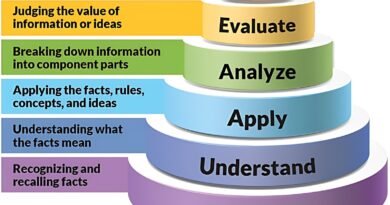Strategy for Economics for UPSC Civil services examination.
Preparing for the Economics paper in the UPSC Civil Services Examination can be quite challenging as it requires a deep understanding of economic theories and concepts. In this article, we will discuss a comprehensive strategy that can help you ace the Economics paper in the UPSC Civil Services Examination.
I. Syllabus Analysis
Before starting your preparation, it is essential to analyze the Economics syllabus for the UPSC Civil Services Examination. The syllabus can be broadly divided into the following categories:
- Microeconomics
Macroeconomics
Indian Economy
International Trade and Finance
Once you have a clear understanding of the syllabus, you can start your preparation accordingly.
II. Study Material
The next step is to gather study material for the Economics paper. The following books and sources can be helpful:
NCERT textbooks: NCERT textbooks for Class XI and XII Economics are an excellent source for building a strong foundation in Economics.
Standard textbooks: A good understanding of standard textbooks like Microeconomics by Pindyck and Rubinfeld, Macroeconomics by Blanchard and Indian Economy by Ramesh Singh is essential for acing the Economics paper.
Economic Survey: Reading the latest Economic Survey can give you a deep understanding of the current economic scenario of India.
Budget: Reading the Union Budget can also give you a good understanding of the government’s economic policies and priorities.
Newspapers and Magazines: Regularly reading The Hindu, The Economic Times, and Business Standard can keep you updated with the latest economic developments in India and around the world.
Websites: Websites like Investopedia, IMF, World Bank, and RBI are also excellent sources of information for building a strong foundation in Economics.
III. Strategy for Microeconomics
Microeconomics is the study of individual economic agents and their behavior. The following topics are covered in the Microeconomics section of the Economics paper:
- Theory of Consumer Behavior
Theory of Production and Costs
Market Structures
Factor Pricing
General Equilibrium
To prepare for the Microeconomics section, the following strategy can be helpful:
Study the theory: A clear understanding of the theory is essential for answering questions in the Microeconomics section. Standard textbooks like Microeconomics by Pindyck and Rubinfeld can be helpful for building a strong foundation.
Solve numerical problems: The Microeconomics section of the Economics paper has a significant focus on numerical problems. Solving numerical problems from standard textbooks can help you master the subject.
Practice case studies: Case studies are a crucial part of the Microeconomics section. Practicing case studies from standard textbooks can give you an idea of the type of questions asked in the Economics paper.
IV. Strategy for Macroeconomics
Macroeconomics is the study of the economy as a whole. The following topics are covered in the Macroeconomics section of the Economics paper:
- National Income Accounting
Money and Banking
Inflation
Unemployment
Fiscal and Monetary Policies
International Trade
To prepare for the Macroeconomics section, the following strategy can be helpful:
Study the theory: A clear understanding of the theory is essential for answering questions in the Macroeconomics section. Standard textbooks like Macroeconomics by Blanchard can be helpful for building a strong foundation.
Study current affairs: The Macroeconomics section of the Economics paper has a significant focus on current affairs. Reading newspapers and magazines can help you stay updated with the latest economic developments in India and around the world.




